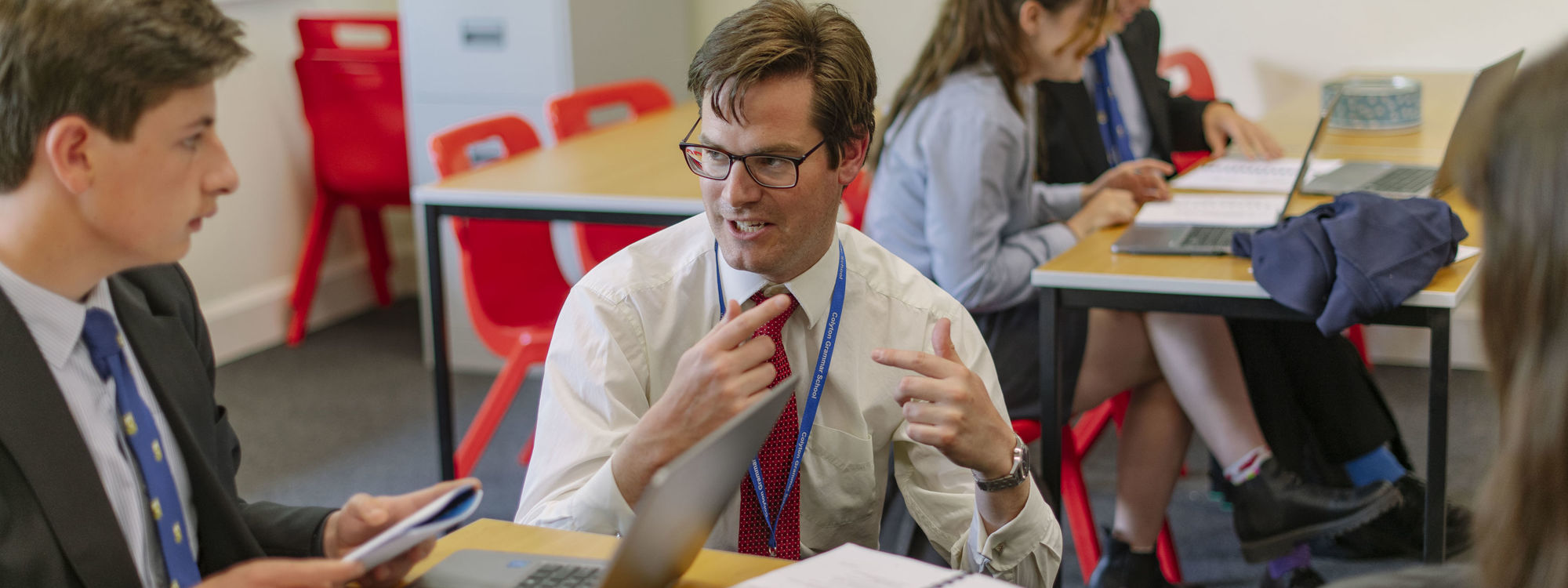- Home
- Curriculum
- Subject Information
- English
English
BackWELCOME
““Literature adds to reality; it does not simply describe it. It enriches the necessary competencies that daily life requires and provides.”
C.S. Lewis
The English Department seeks to foster a deep-rooted love of reading, language and performance in its students, encouraging them to articulate complex ideas with confidence and style, both orally and in writing. We want our students to be critical readers, not only of literary texts, but of the world around them. We want to give them the ability to contribute positively to that world by speaking and writing with impact.
WHAT WE DO
In English we balance a solid grounding in the key principles of reading and writing, speaking and listening, with encouragement to think independently, critically and creatively. From Year 7 to Year 13 we introduce our students to an ambitiously diverse range of challenging texts, encouraging them to develop personal responses, both critical and creative. Students develop confidence writing and speaking in a variety of different roles and contexts, and are encouraged to read widely for pleasure, developing their own tastes and areas of interest.
The department is committed to a curriculum and co-curricular programme that stretches well beyond GCSE and A-level examinations. Indeed, we feel it is because of this breadth that our students achieve so highly, not only in exams, but by regularly succeeding in essay, creative writing and public-speaking competitions, and by successfully applying to read English at university.
The department offers students a rich programme of co-curricular opportunities, including theatre trips, visiting speakers, creative writing workshops, public speaking and debating, and an award-winning student-produced school magazine. In the Sixth Form, there is an extensive programme of extension and support for those students considering applying to read English at university, with students regularly securing places at Oxford and Cambridge.
At A-Level, there is much emphasis on students developing their own literary interests by reading around and beyond texts studied in class. For example, students are expected to read a range of novels independently before deciding which they wish to write about for their coursework.
Lower Years English
The lower years curriculum will involve the following:
| Year 7 | Year 8 | |
|---|---|---|
|
Autumn Term |
Spin Drama text: Flowers for Algernon |
Study of a Shakespeare play: Romeo & Juliet |
|
Spring Term |
Novel: The Bone Sparrow Poetry |
Place: Reading and writing of fiction, non-fiction and poetry |
|
Summer Term |
Poetry The Power of Persuasion: writing and speaking to persuade |
Study of a novel: Moonfleet Creative writing Response to contemporary short stories |
Middle Years (Y9-11) English
The middle years curriculum will involve the following:
| Year 9 | Year 10 | Year 11 | |
|---|---|---|---|
|
Autumn Term |
Protest: Fiction, non-fiction and poetry |
Language: Writing in the workplace Literature: Silas Marner |
Language: Reading and writing fiction and non-fiction Literature: Othello |
|
Spring Term |
Language: Reading and writing fiction Literature: An Inspector Calls |
Language: Reading and writing non-fiction Literature: Silas Marner |
Language: Reading and writing fiction and non-fiction Literature: Poetry Anthology |
|
Summer Term |
Language: Reading and writing fiction Literature: Poetry Anthology (War) |
Language: Reading and writing non-fiction Literature: Poetry Anthology (Love) |
Revision |
Upper Years English
An Introduction to English at A Level presentation
Course Aims
The primary aim of the English Literature course is to help students develop a deep knowledge and understanding of great works of literature. Students gain the ability to interpret texts with insight, and to express their ideas with clarity and flair. However, no work of literature exists in a vacuum, and, through studying literary texts, students also consider elements of history, philosophy, social sciences, psychology, drama and art, gaining an appreciation of how these cultural elements are intertwined. By doing so they develop the ability to critically interpret not just works of literature, but the world in which they live.
Syllabus Content
A-Level English Literature explores a very wide range of literary texts. It goes far beyond the somewhat
prescriptive GCSE syllabus, developing creativity and independence. There is an emphasis upon students developing their own personal literary interests, for example by reading around the set texts, and writing their coursework essay on novels they have read independently. The course is supported by a rich co-curricular programme, including visiting speakers, writing workshops and visits to the theatre.
Suitability
Whenever members of the English Department are asked “Would I enjoy doing English A-Level?” we always reply: “Do you enjoy reading?” If the answer is yes, then this is the course for you. The most successful students are those who read independently for pleasure. If you are excited by the prospect of reading a wide variety of challenging texts – re-reading and exploring them in depth and discussing your ideas with others – this is the course for you.
Curriculum Structure
|
|
Year 12 |
Year 13 |
|
Autumn Term |
Prose: study of post-2000 text. Independent reading of other novels.
Drama: study of post-1900 play.
Unseen prose and poetry. |
Poetry: study of pre-1900 text.
Drama: study of Shakespeare play.
Prose: completion of coursework essay.
Unseen prose and poetry. |
|
Spring Term |
Poetry: study of two post 1900 poets.
Drama: study of pre-1900 play.
Unseen prose and poetry.
|
Revision of set texts and exam preparation. |
|
Summer Term |
Poetry: study of two post 1900 poets.
Prose: study of pre-2000 text and coursework essay planning.
Unseen prose and poetry. |


